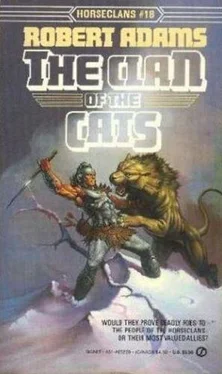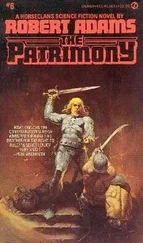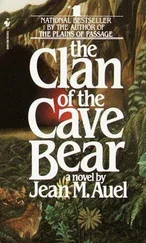“But he’s gone now—good riddance to filthy sewage, in his particular case—and so are Barstow and Bedford and all the other people who were of that world, except for me … and, maybe, Clarence Bookerman and, to believe what he wrote, possibly one or two more like us, somewhere.
“And if Barstow and his few had succeeded, where would I be now? What would I be doing? If he had really succeeded, had gotten the world into the shape it would’ve had to be maintained in to survive, there would be no need of small private armies, no small insurrections to be put down here and there every few years in out-of-the-way generally unpleasant parts of the globe, so surely I wouldn’t be plying the trade I followed for most of the time after the U.S. Army decided I was too old to longer serve.
“Well, whatever and wherever, I wouldn’t’ve been hurting for living expenses, good old Jethro Stiles saw to that much long, long ago. No, I’d most likely have not been soldiering, training soldiers or teaching others how to properly train them, going from continent to continent, nation to nation, war to insurrection to guerrilla as I did for so long; but even so I might well have had to follow the course that Bookerman did: living in areas until too many people were become aware that I didn’t age, then moving on, changing my name and identity, only to have to move on again after a few years or a couple of decades, at the very most, tops.
“Over the years, since he decamped so precipitously, back in Kansas … or was it Nebraska? I can’t now recall … I’ve often wondered about him, speculated on the forces that shaped him, that so warped him as to make him a still-fervent adherent of German National Socialism while seemingly completely forgetting, mentally blanking out, all of the horrors attendant to that ill-conceived, ill-starred philosophy and regime, even scores of years after its overdue demise.
“I’ve just about come to the conclusion that it was the constant moving, the rootlessness, the never-ending fear of apprehension by civil or, worse, ecclesiastical authorities, the endless round of losing all whom he held dear, respected or loved that brought him to cling so passionately to Adolf Hitler and his cause, immediately he discovered Hider to be such a one as himself … and. God help me, like me, too, if he guessed right.
“Hitler, the National Socialist German Workers’ Patty, and the Third German Reich became in Bookerman’s mind, then, not simply a cause but truly a family—the loved and cherished family he had for so long sought and been denied. People, even my kind of people, tend to magnify the good and gloss over the bad qualities of those they love and cherish, and so did Bookerman with his “family.” In his eyes, his mind, Hitler could not possibly do anything wrong, all of his aims were lofty, exalted.
“Clarence Bookerman is not, himself, a bad or an evil man, I believe, I have come to believe. He is brilliant, multitalented, a worthy product of the Renaissance that spawned him; he is, can be, generous, compassionate, self-sacrificing and intensely loyal to those he feels deserving or needful, and all of these have always been considered to be commendable qualities for any human being to possess. Yes, admitted, he can be narrow and very cruel, too, but in all the cases I saw of him, only in regard to his loyalties, to those he knew to be dependent upon him and his protection.
“An excellent case in point is what he did to that bushwhacker we captured in Colorado. God, it was gut-wrenching to have to watch and hear while he used a stainless-steel teaspoon to take out that bastard’s eyeball—especially so for me, since I knew just how it felt to have eyes gouged out, the damned Vietminh having done that and other things to me before they shot me and left me for dead after I’d escaped from Dien Bien Phu.
“What Bookerman did on that day so tore up and alienated Gus Olsen and Harry Krueger that neither of them ever after that would have any more to do with Clarence than absolutely necessary. But what he did was the only thing that would have worked to break that tough young bastard, that got for us the location of the place in which his gang of marauders had holed up and enabled us to surprise them and slaughter them, removing a deadly menace that could well have cost the lives of most or all of our people, had it been allowed to continue to exist.
“And then there were so many other things he did for the good of our people, such as boiling old, hellishly unstable dynamite in order to render out and provide us with nitroglycerin with which to attack the camp of that same bunch of bushwhackers in Colorado, or insisting to be the one to be put out on the prairie alone and beyond any sort of assistance in order to test out that first felt yurt he’d designed and put together, and so planned it as to ride out a terrible blizzard out there in isolation. Those are examples of selflessness and very real concern if such ever existed, to my way of thinking.
“But Gus and Harry never could seem to understand, after that one terrible incident, and I think that in large measure, their unceasing animosity and uncompromising distrust of him and anything that he suggested or did was a primary reason that he left us when and as he did. I, at least, know and recognize and acknowledge the patent debt we all owe Dr. Clarence Bookerman. for without his experiments and the notes he left for me to find, the survival of the group whose descendants are become the Horseclans would’ve been a very chancy, iffy thing, indeed.
“Nomadic life is hard—always has been, always will be—the mortality rate is high, the suffering severe, so that even with a bit of an edge on survival, only the very toughest ever live long enough to breed more of their rugged kind. Aspects of Bookerman’s unquestioned genius, it was, that gave the Horseclans progenitors that precious edge.
“They might’ve still survived, some of them anyway, with only my guidance, true. But despite my years of warring and hunting all over the world, I still was basically a creature of the then-recent past—of the late twentieth and very early twenty-first centuries—and, as such, far too dependent upon manufactured chemicals, drugs and equipment to have done those people all that much good in their initial, desperate struggles to adapt, to learn to survive their new, incredibly rugged life as herders on the prairie, lacking almost everything they needed in the beginning, especially the knowledges of how to adapt naturally occurring items to their needs.
“Bookerman, on the other hand, could draw upon the personal and empiric knowledge of centuries rather than just some few mere scores of years.
“From the few hints I heard from him and read in his letter and notes. I think he must have lived through at least a part of the seventeenth century and, certainly, through all of the eighteenth, nineteenth and twentieth, so he had memories of how things had been done, made, fashioned and from what raw materials before the industrial age, even, much less the technological age. It was these memories, plus his spate of experiments, that made his notebooks so precious to the people he left in my care.
“I wonder if he has survived? Probably. I wonder just where he is now. What he’s doing? I wonder if ever I’ll run across him again, too, I wonder that often. I sure hope so.
“Back to the cats, now. They, too, could be a very definite survival edge for the Horseclans. People used to state that as opposed to dogs, horses and other domestic animals, cats were untrainable, sneaky and unreliable if not inherently vicious, and they were right as far as they took their argument and the thoughts behind it.
“Cats are indeed different from dogs or any others of the so-called domestic animals; I recall reading once that the cat tribe constitute the epitome of predator development, are one of the most highly evolved forms of mammal, very adaptable and so able to live and breed in a vast range of habitats—subarctic to tropic, swamp to desert, mountain to prairie. From a cave in a ruin to a yurt on the plains? Maybe.
Читать дальше












